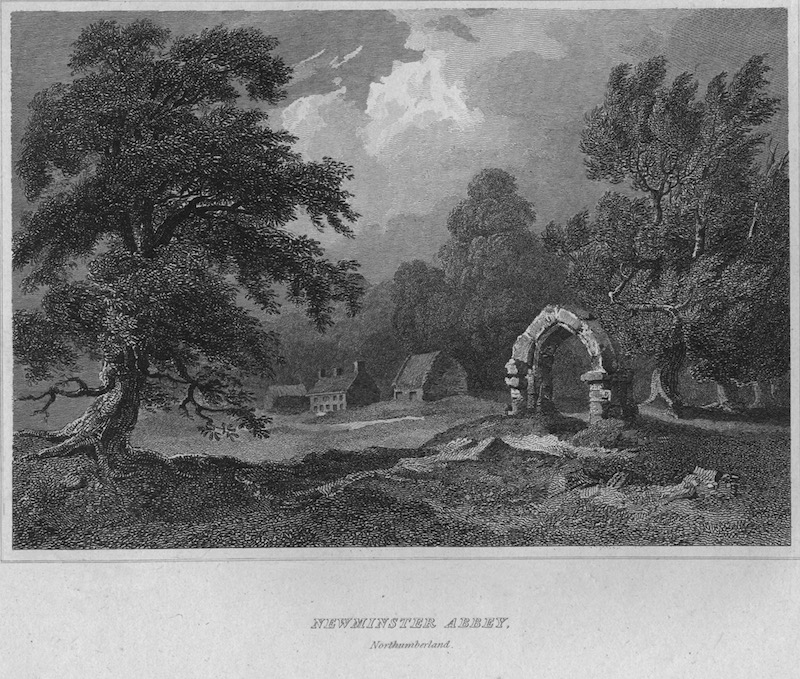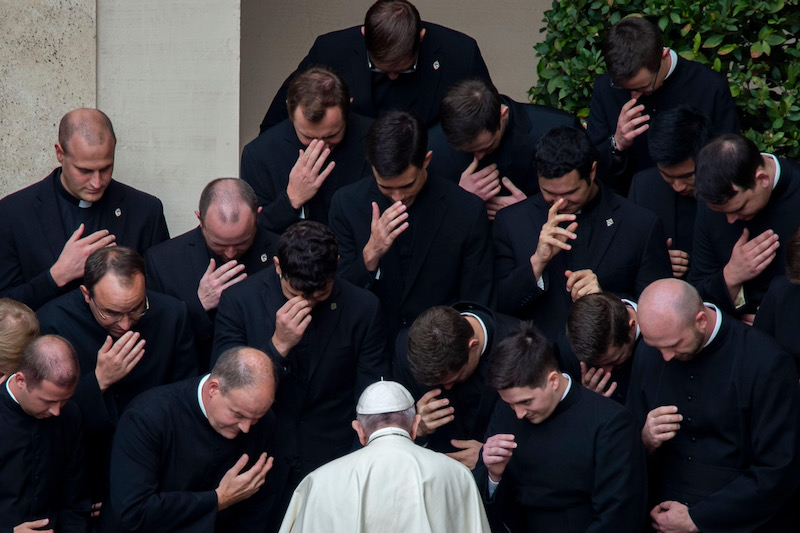A few years ago Pope Francis met seminarians and priests studying in Rome for a discussion on priestly life and formation. When things drew to a close the Pope led them in the Angelus prayer. At this point, one observer told me, some clerics opened up a breviary prayer book issued before the Second Vatican Council. Although there is nothing preventing them from using this liturgical book– sanctioned by Benedict XVI in 2007 when he relaxed restrictions on the use of the old rite – it illustrated a wider point.
Francis is concerned about priestly formation including, one cardinal said, “the tendency to go a bit far from the Second Vatican Council” and the “re-taking of traditionalist positions”. Cardinal Braz de Aviz, the Brazilian official who leads the Holy See’s congregation for religious, told a webinar organised by the Spanish Catholic publication, Vida Nueva, that Francis had spoken to him about all this during one of their meetings recently.
Now Gerard O’Connell of America reports that Francis has ordered a review of the Congregation for Clergy, the department in the Roman Curia which has responsibility for priests, their training and their ongoing formation. It follows a similar review he commissioned into the Vatican’s liturgy office, ahead of appointing a new prefect.
The issues at play concern both who is admitted to seminaries, and the formation of clergy before and after ordination. It is not primarily a question of a seminarian or a priest’s liturgical preferences but whether they might seek to impose an ideologically-driven vision of the Church in their parish. That results in division and difficulty.
Questions of formation are clearly on the Pope’s mind. Addressing the Italian bishops’ recently, Francis talked about the problems of a rigid mindset. “We frequently saw seminarians who seemed good but rigid,” he told them “And rigidity is not of the good spirit …There were big problems behind that rigidity.”
The Pope also warned the Italian bishops about admitting men who had been rejected by other dioceses or religious congregations into seminaries (a growing problem due to intense pressure bishops are under to find more priests) and revealed that Vatican’s Congregation for Clergy has written to the President of the Italian Bishops’ Conference, Cardinal Gualtiero Bassetti, setting out his concerns.
Bubbling under the surface is the growth of “Rad trad” Catholicism, which is on the rise in the United States. At the extreme end, it is represented by priests such as Fr James Altman, from La Crosse diocese, Wisconsin. He believes practising Catholics cannot be Democrats, describes climate change as a hoax, has defied local ordinances about covid safety, and assert that woman can’t preach because they’re only concerned with questions such as “Does this dress make me look fat?”, whereas men want truth and straight answers. His bishop has recently asked him to resign from his parish, but Fr Altman is resisting and has swiftly raised $640,000 to fight his corner.
Good formation is like an investment. Admitting a candidate whose formation lacks sufficient rigour is the equivalent of putting a mortgage on the Church. The price of poor selection and inadequate formation can be seen in the high dropout rate among priests in the early years after ordination.
Archbishop Jorge Patron Wong, who has responsibility for seminaries at the Congregation for Clergy, has been trying to address the issue of formation issues. In 2016, his department released a 91-page document on seminary training aimed at rooting out clericalism, an obsession with liturgy and a “presumed theological or disciplinary certainty”. It seeks to ensure that candidates undergo a robust formation and that priests continue to be supported in their vocation after ordination. It was a start, but more work is needed. The review the Pope has commissioned will help him pick a new prefect at the congregation (the incumber, Cardinal Beniamino Stella, soon turns 80) to push forward on reforms to ongoing priestly formation, and seminary training.
All of this comes alongside speculation about a new document from the Pope about the pre-Vatican II liturgy known as the Extraordinary Form – the so-called traditional Latin Mass or Tridentine Rite. Some claim Francis is preparing to rescind or Benedict XVI’s ruling, Summorum Pontificum. Yet it is highly unlikely that the Pope will undo legislation issued by his predecessor, nor does he wish to inflame the “liturgy wars”. What is more possible is a clarification of the rules around the celebration of the liturgical form. In 2011, an instruction was issued by the Vatican on how to apply Summorum Pontificum; a decade later, an update is necessary. Any document is likely to be informed by the worldwide review of the old rite which took place which looked at whether this was being celebrated in response to requests from the faithful, and to what extent it is promoted by individual priests. We should also remember that the Pope insists on the liturgical reforms which followed Vatican II as “irreversible”.
The questions at stake are less about the liturgical rubrics, or which rite some priests are more attached to (the Extraordinary Form has its following and a legal basis which is not going away). For Francis, what is necessary is a model of ministry rooted in service, where well-formed pastors have the “smell of the sheep” and authentically represent the figure of Jesus who bent down to wash the feet of the disciples.
“If you think of a priesthood isolated from the people of God, that is not a Catholic priesthood,” the Pope told a group of priests. “Nor is it even Christian one”.



 Loading ...
Loading ...
What do you think?
You can post as a subscriber user ...
User comments (0)